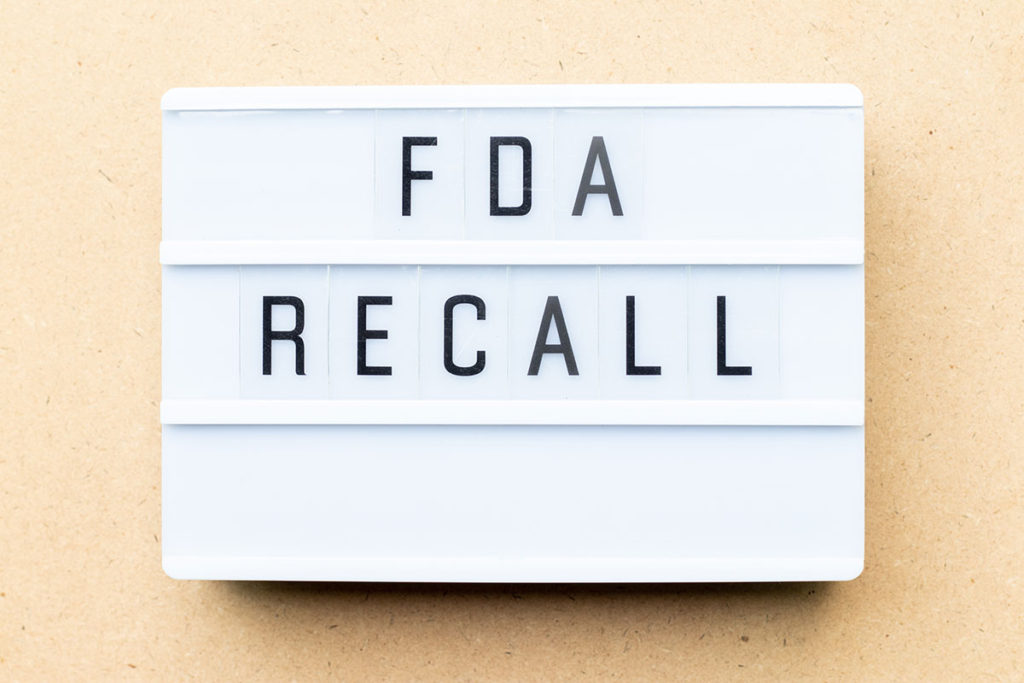Whether or not you have a health condition that requires ongoing prescription medication use, or you are someone who rarely uses medication, it is important to know and understand if and how medication is recalled. It is important to be vigilant when using prescription drugs in order to ensure what you are taking is safe as well as effective.
The U.S. Food and Drug Administration (FDA) is the branch of the federal government that oversees the regulation and safety of prescription and over-the-counter medication, in addition to its other charges. If a certain product under its jurisdiction is contaminated, defective, or poses otherwise potential negative health implications, the FDA may issue a public recall of that item.
Recalls are categorized by the FDA into three different classifications, and understanding these classifications is important when determining how a recall may affect you. In a Class I Recall, significant and immediate danger, serious injury, or death has been determined to be caused by the use of the product.
Even those Class I recalls are rare, they should be obeyed as soon as you become aware of the situation. In this event, the FDA will develop a plan for the manufacturer and the product involved to make sure compliance with the recall is trackable and complete. Under these serious circumstances, the objective is to remove all of the affected items from the market as well as from people’s homes to ensure no further damage takes place.
If a Class II Recall is issued by the FDA, there is no immediate danger, serious injury, or death linked to the product, but the risk is still present. Class II recalls are preventative in nature, once health and safety risks are involved and have been determined to be possible. In this scenario, the FDA will work with the manufacturer to distribute information about the recall to the consumers, in addition to creating a plan to make sure all items are pulled from the market.
In the final category of Class III, recalls are issued where there is no immediate or perceived danger to health, but where items that have been released are in violation of FDA regulations. This circumstance can happen when medications that are potentially contaminated during manufacturing continue to market against regulation.
There are times when medications or medical products make it to market and cause harm before problems have been detected by the FDA. The best practice to ensure that the products you are using are safe, and remain safe, to use, is to check with the Drug Law Journal to see listings of product recalls and advisory information. The Drug Law Journal is a comprehensive and up to date resource for medical and health related news and law. Understand how your medications affect you and your rights if what you are prescribed is recalled.

